
MacMillan's 10-Step Neurodiverse Family Systems Approach:
A Comprehensive Framework
to support neurodivergents and their families throughout adulthood.
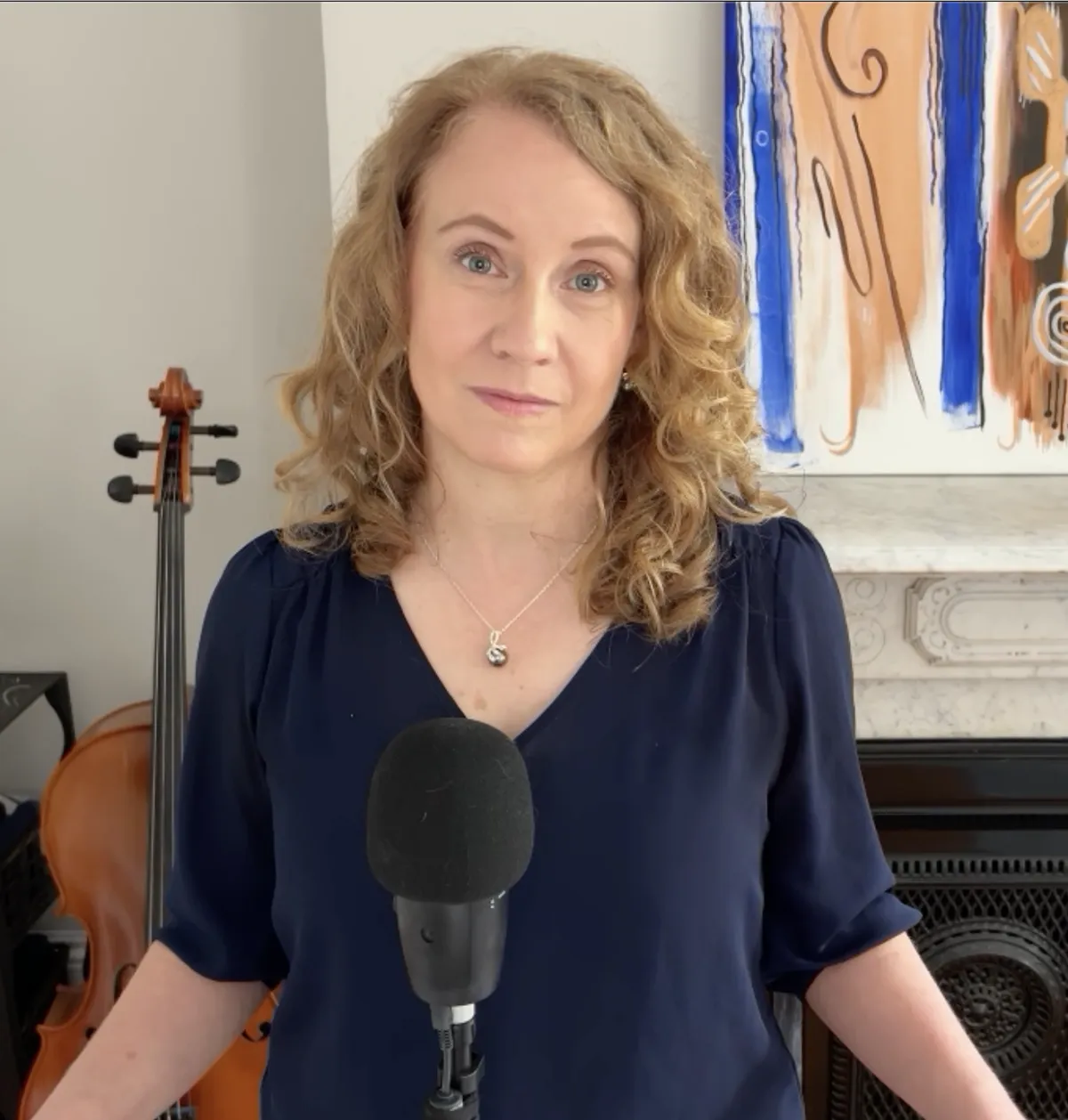
Anne MacMillan, MLA
Founder of the R.E.A.L. Neurodiverse™ 10-Step Family Systems Approach, Speaker, Researcher, Consultant, Coach, Educator and Expert Witness
About Anne MacMillan
I am the creator of the R.E.A.L. Neurodiverse™ Family Systems Approach — the first comprehensive, educational 10-step model designed to help autistics, non-autistics, and professionals understand the neurological foundations of relational conflict and connection. My work integrates developmental psychology, systems theory, and over five decades of lived experience inside profoundly neurodiverse family systems.
I originally developed the Neurodiverse Family Systems Theory based on my education, personal history, and the insights I gained in the private neurodiverse services practice I founded in 2017. Since then, the work has evolved into a clear, scalable framework that professionals can use to guide their clients through complex neurodiverse dynamics with structure, clarity, and compassion.
Today, I support professionals across disciplines — therapists, psychologists, coaches, social workers, clergy, and educators — who are discovering that neurodiversity is often the missing piece in the adult relationship challenges they see. Through the Neurodiverse Family Systems Educator Credential (NFS‑E), providers gain access to the full R.E.A.L. 10-Step system, including original quantitative assessments, dyadic tools, and evidence-informed support resources they can immediately apply with clients.
I hold a research-based master’s degree in psychology from Harvard University, where I received the Director’s Thesis Award for one of the world’s first quantitative studies on Level 1 autism in intimate life partnerships. My graduate and undergraduate studies focused on developmental psychology — work that continues to inform every aspect of the R.E.A.L. approach.
In total, I bring more than 50 years of lived experience in neurodiverse family systems (including my childhood in a profoundly neurodiverse family), over 20 years of experience in a neurodiverse intimate partnership, and nearly a decade of professional practice supporting individuals, couples, and families navigating the complexities of neurodiversity.
I self-identify as a high body empathetic and attention neurodivergent (ADHD). I’ve never pursued a formal ADHD diagnosis, as I trust self-identification over professional labeling. I am not autistic, but I have spent my life deeply connected to autism, attention-based neurodivergence, and high-body-empathy neurology — both personally and professionally. My work is dedicated to helping others gain the clarity, skills, and relational wellbeing they deserve.
Our Services
Support for Autistics, Non-Autistics & Professionals Navigating Neurodiverse Family Systems
At R.E.A.L. Neurodiverse™, we offer a comprehensive set of services to help individuals, couples, families, and professionals navigate the complex relational dynamics that emerge in neurodiverse systems. Whether you're seeking clarity, healing, or practical tools — we provide structured, research-informed, and neurologically attuned support.
For Individuals & Families
Our 10-Step R.E.A.L. Neurodiverse™ Family Systems Approach helps you:
• Understand how neurological differences shape relationships
• Navigate conflict, disconnection, and emotional burnout
• Reclaim boundaries, rebuild identity, and restore relational health
• Support autistic and non-autistic family members without blame
• Move toward clarity, peace, and personal wellbeing
You’ll gain access to educational video series, guided journaling, empathy spectrum tools, and step-by-step insight modules that honor your unique neurological perspective.
For Couples in Neurodiverse Relationships
Whether you are just beginning to understand neurodiversity in your partnership, or working through years of relational strain, our framework supports both partners in:
• Exploring Neurodiverse Relationship Dynamics (NRD)
• Understanding patterns of passiveness, masking, accommodation, and reactivity
• Developing sustainable communication, empathy, and action-impact awareness
• Making empowered decisions — together or separately
We provide non-pathologizing tools to help each partner gain self-understanding, reduce harm, and decide what healing or repair is possible.
For Professionals & Providers
We train therapists, coaches, educators, clergy, social workers, and organizational leaders to become Neurodiverse Family Systems Educators (NFS‑E). Our training includes:
• Full access to the 10-Step R.E.A.L. System
• Research-based assessments, tools, and client materials
• Guidance on working with Level 1 autistic adults, non-autistic partners, and neurodiverse family systems
• Opportunities for credentialing and community collaboration
If you're seeing adult clients stuck in repeated relational conflict, burnout, or unexplained emotional exhaustion, it’s time to integrate neurodiversity into your practice.
Specialized Services
We also offer:
• Expert witness consultation on autism and neurodiverse family dynamics
• Executive coaching for autistic and attention-divergent leaders
• Support for professionals navigating autism in educational or clinical settings
• Resources for faith leaders and community organizations
MacMillan's 10-Step
Neurodiverse Family Systems Approach

Neurodiverse Families and the Co-Occurrence of Autism and Attention Neurodivergence (ADHD): Insights from Recent Studies
Discover how autism and attention neurodivergence (ADHD) frequently co-occur within neurodiverse families. This blog explores key research, including a 2017 study and the 2021 discovery of the SHANK2 ... ...more
Foundations & Frameworks
December 06, 2025•3 min read
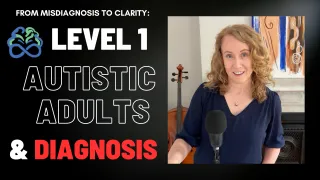
From Misdiagnosis to Clarity: Level 1 Adult Autism in the 21st Century
Anne MacMillan explores the challenges faced by undiagnosed Level 1 autistic adults who make up a "lost generation," highlighting their journey to self-discovery and the importance of accurate diagnos... ...more
Foundations & Frameworks
August 26, 2024•4 min read
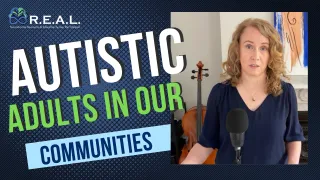
Level 1 Autistic Adults in Our Families and Communities: Unseen Challenges and Neurodiverse Communication
Recognizing Level 1 autism adults in our communities is crucial, yet many go undiagnosed. Neurodiverse communication exists all around us due to the ways autistic and non-autistic brains interact. It ... ...more
Foundations & Frameworks
August 19, 2024•5 min read
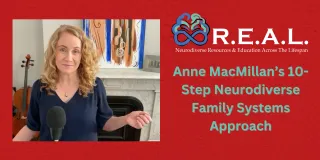
The R.E.A.L. Neurodiverse™ 10-Step Neurodiverse Family Systems Approach: A Framework for Supporting Level 1 Autistic Adults and their Neurodivergent and Neurotypical Family Members
Discover Anne MacMillan's R.E.A.L. 10-Step Neurodiverse Family Systems Approach—a structured framework designed to support Level 1 autistic adults and their neurodivergent and neurotypical family memb... ...more
The R.E.A.L. Neurodiverse™ 10-Step Approach
August 12, 2024•9 min read
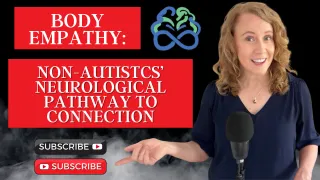
Understanding Body Empathy: The Non-Autistic Sense Supporting Connection
Discover the concept of body empathy (MacMillan), a sense rooted in non-autistics' nervous systems that allows them to experience and connect with others' actions. Learn how this sense, akin to the 5 ... ...more
Empathy & Nervous System Science
August 12, 2024•3 min read
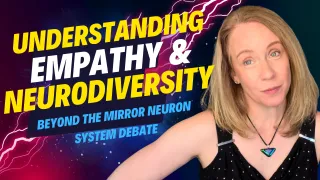
How a Meta-Analysis Ended the "Broken Mirror Neuron Debate" on Autism and Empathy
Explore how a meta-analysis by Chan and Han ended the "Broken Mirror Neuron Debate." Learn about differences in the mirror neuron system in autism and how these impact empathy. Discover the importance... ...more
Empathy & Nervous System Science
August 06, 2024•4 min read
MacMillan's Neurodiverse Family Systems Theory
What Makes the R.E.A.L. Neurodiverse™ Theory Different?
Most relationship models assume that everyone perceives the world — and each other — in similar ways. But in neurodiverse families, this simply isn’t true.
Autistics and non-autistics navigate relationships using completely different neurological frameworks. These unseen differences lead to chronic miscommunication, emotional confusion, and cycles of conflict that feel deeply personal — but are actually rooted in the nervous system.
I call this phenomenon Neurodiverse Relationship Dynamics (NRD™) — a predictable, neurologically driven pattern that affects communication, empathy, identity, boundaries, attachment, and conflict resolution.
In these systems, intermittent trauma spikes — sudden emotional blowups or shutdowns — are often misunderstood as personal failings. In reality, they’re the result of mismatched processing styles, unmet needs, and repeated breakdowns in perception and empathy.
At the heart of it all is empathy difference. Autistics often experience emotion-sharing empathy — a raw, sometimes overwhelming awareness of others’ emotions without necessarily knowing their origin. Non-autistics, especially high body empathetics, experience body empathy — a deep physical resonance with others’ emotional states, often without conscious awareness. And attention neurodivergents (like those with ADHD) may amplify or diffuse emotional dynamics in ways that confuse both themselves and others.
These differences — combined with generational neurodiversity and inherited coping roles — create layered, self-reinforcing patterns that standard therapy models often miss entirely.
That’s why I created the R.E.A.L. Neurodiverse™ Family Systems Theory and the 10-Step R.E.A.L. Neurodiverse™ Approach: to provide an educational, research-informed roadmap that validates lived experience while giving people real tools for insight, healing, and change.
This approach helps:
• Individuals reclaim their identity and emotional wellbeing
• Couples understand and interrupt damaging patterns
• Families make sense of their multigenerational dynamics
• Professionals gain practical tools to support clients they were never trained to understand.

Anne MacMillan, MLA
Founder of the R.E.A.L. 10-Step Neurodiverse Family Systems Approach, Speaker, Researcher, Consultant, Coach, Educator and Expert Witness
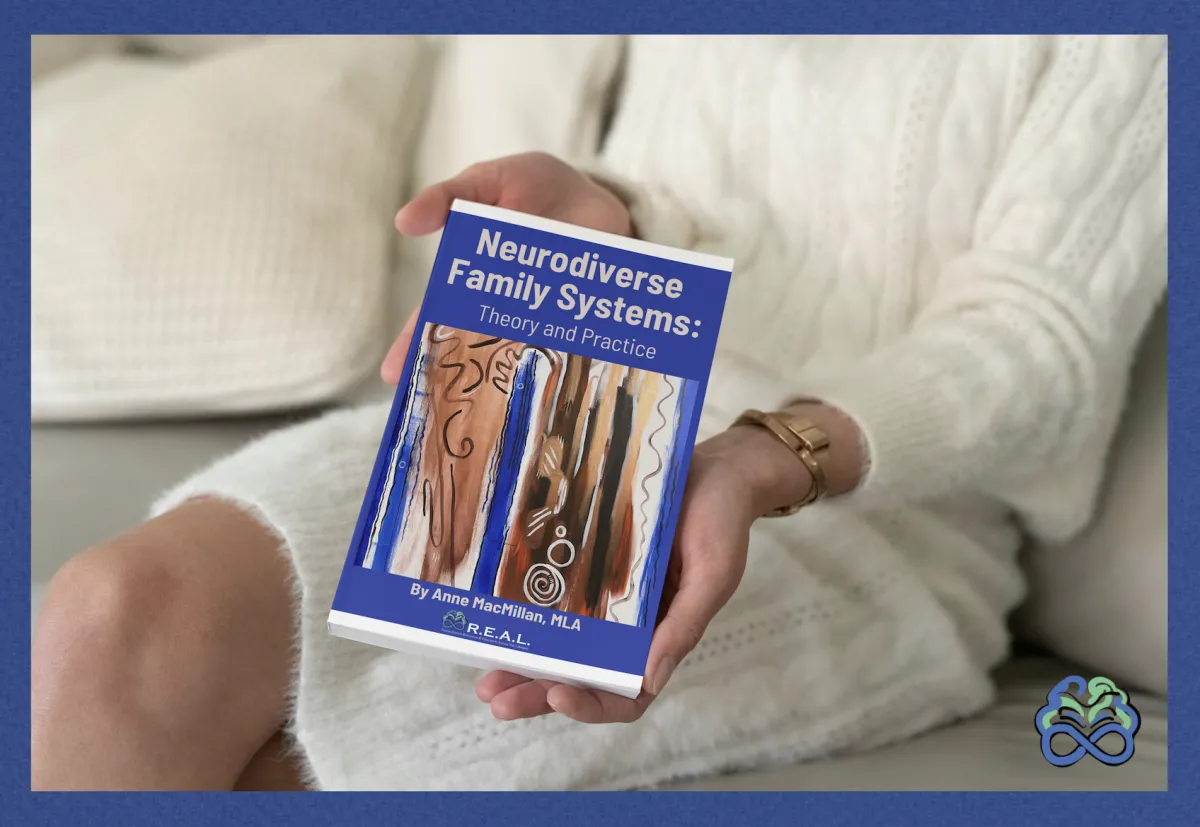
You don’t have to keep reliving the same painful cycle.
With the right insight, change is not only possible — it’s predictable.



Pre-Order Your
Copy Today
Neurodiverse Family Systems: Theory and Practice
By Anne MacMillan, MLA
© 2025 R.E.A.L. Neurodiverse™
All Rights Reserved
anne@REALneurodiverse.com
Text or Call: (617) 996-7239 (United States)